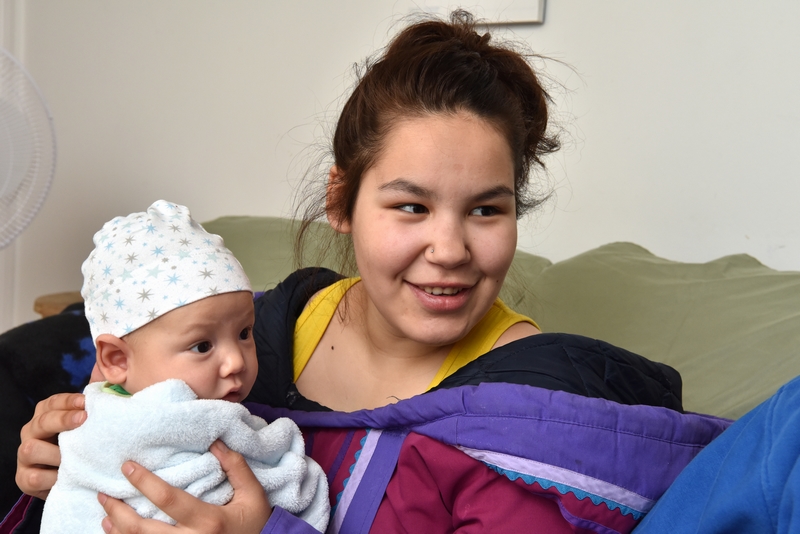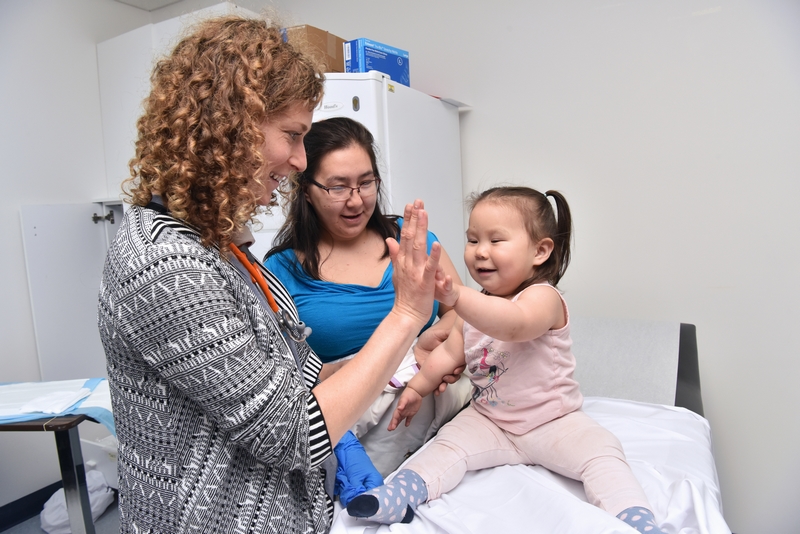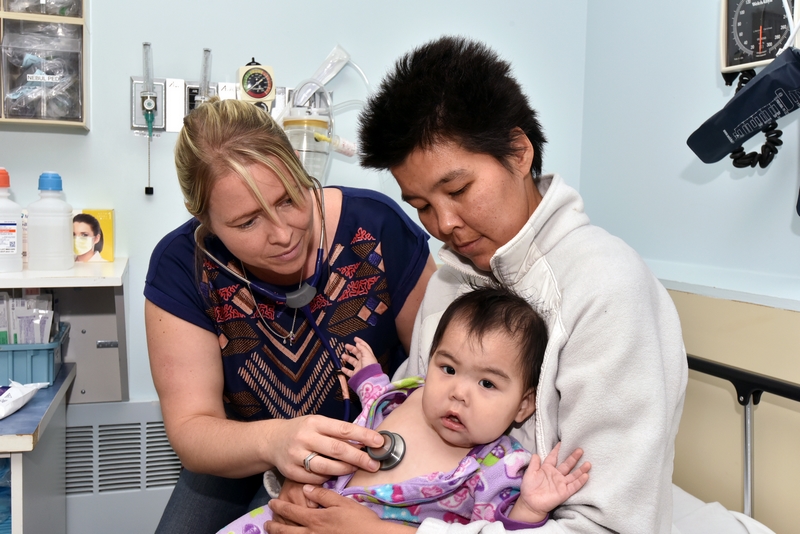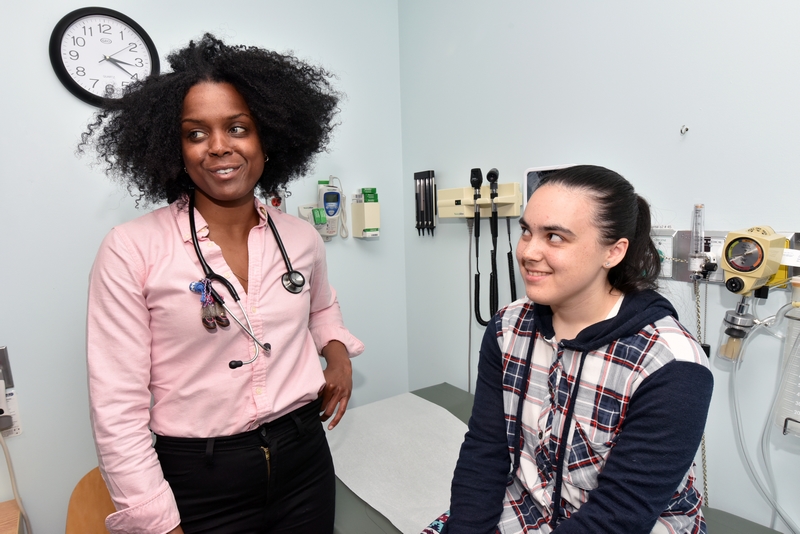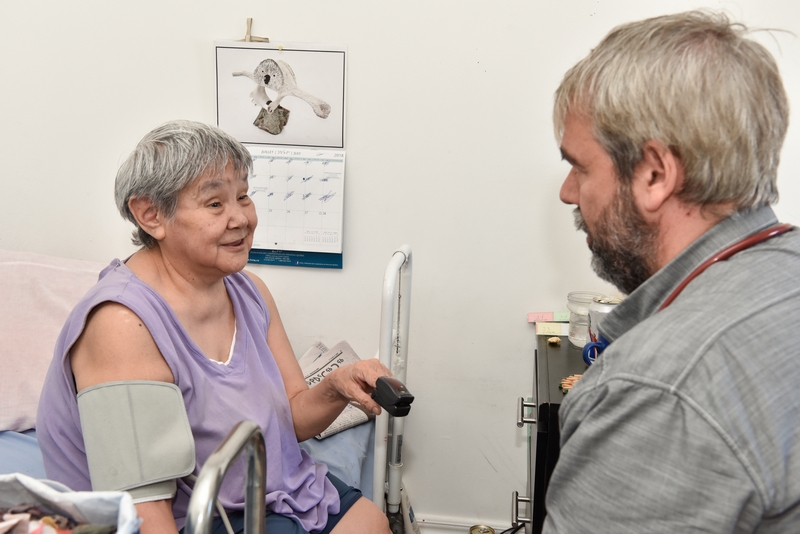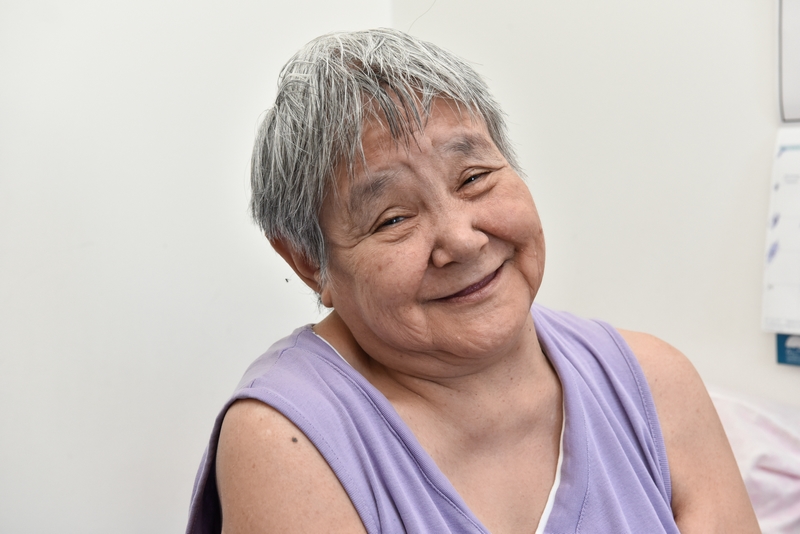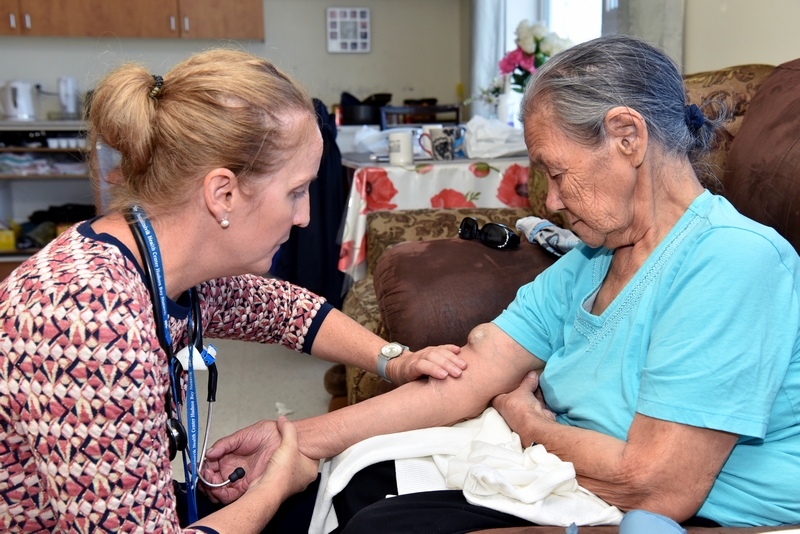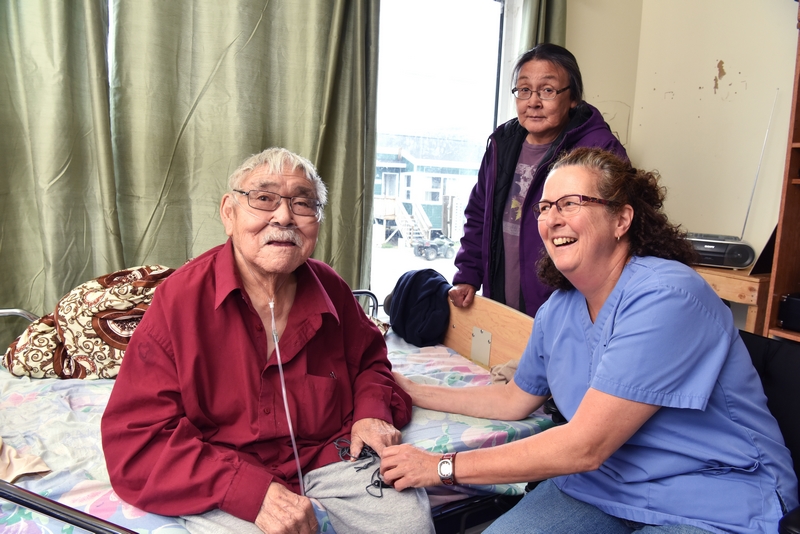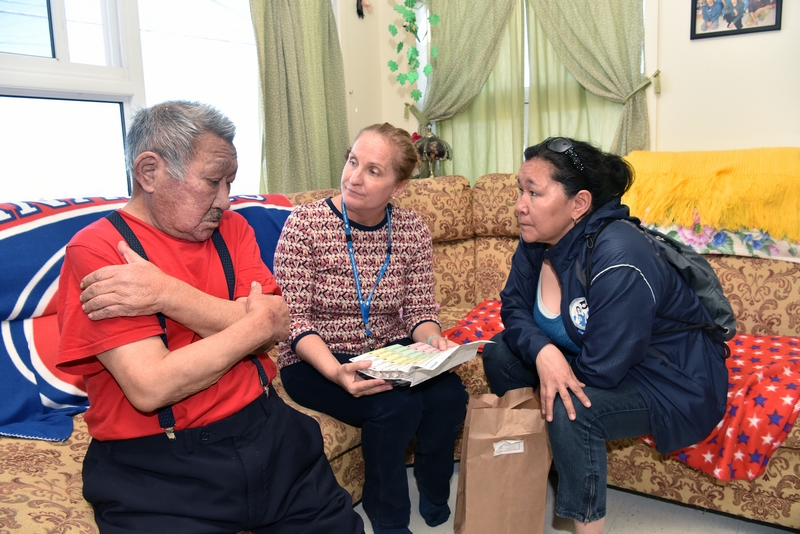The population in northern Quebec is significantly younger than the Quebec population as a whole. In 2015, the average age up North was 31.9, while in the rest of Quebec it was 41.7. 34.9% of youth up North are under the age of 20, whereas only 20.7% of youth in the rest of Quebec are under the age of 20. The demographic weight of the so-called working-age population up North, i.e. the 20-64 year olds (57.9%), is also lower than in the rest of Quebec (61.7%).
Providing care in a northern region
A population that is both young and ageing
However, even though the Indigenous population is young, it is still ageing. In 2006, 4.8% of the Indigenous population was aged 65 and over. This percentage increased to 7.3% in 2016. digenous population was aged 65 and over. This percentage increased to 7.3% in 2016. The percentage of the Indigenous population in this age group, relatively speaking, remains well below the data for the whole of Quebec (17.6%).
Source : Institut de la statistique du Québec; Bulletin statistique régional – Nord-du-Québec; 2016
In order to offer this specific population care across this vast territory, healthcare professionals have to play an extended role.
“The extended role is defined in the collective agreement, it is standardized. It is what allows a nurse in a northern clinic to perform assessments and write prescriptions. Giving stitches is a good example of a duty in the extended role. In southern Quebec, only doctors give them. Add to that symptomatic gynaecological exams. Nurses regularly perform them up North, but in the south, only gynaecologists perform them. Médévac is also part of the extended role. It’s not a defined role, but our patients need to be accompanied for emergency air ambulance services.”
- Cyril Gabreau, Nurse Clinician in community health
“It was the possibility of practicing an extended role that drew me to the Far North. I want to use all of my abilities, to continuously grow. I want to understand my patient, her illness, and how to help her life. I want to work in maternity, psychology—I want to do everything as a nurse. It’s fascinating!”
- Danica Dragon Jacimovic, Nurse in a northern clinic
“You constantly have to ask yourself how a nurse would have reacted in the same situation, the same context. There’s no safety net, like a doctor or pharmacist on site. You have to be vigilant at all times. Clinical judgement and experience are what count. It’s the human factor that comes into play.”
- France Roberge, Nurse in a northern clinic
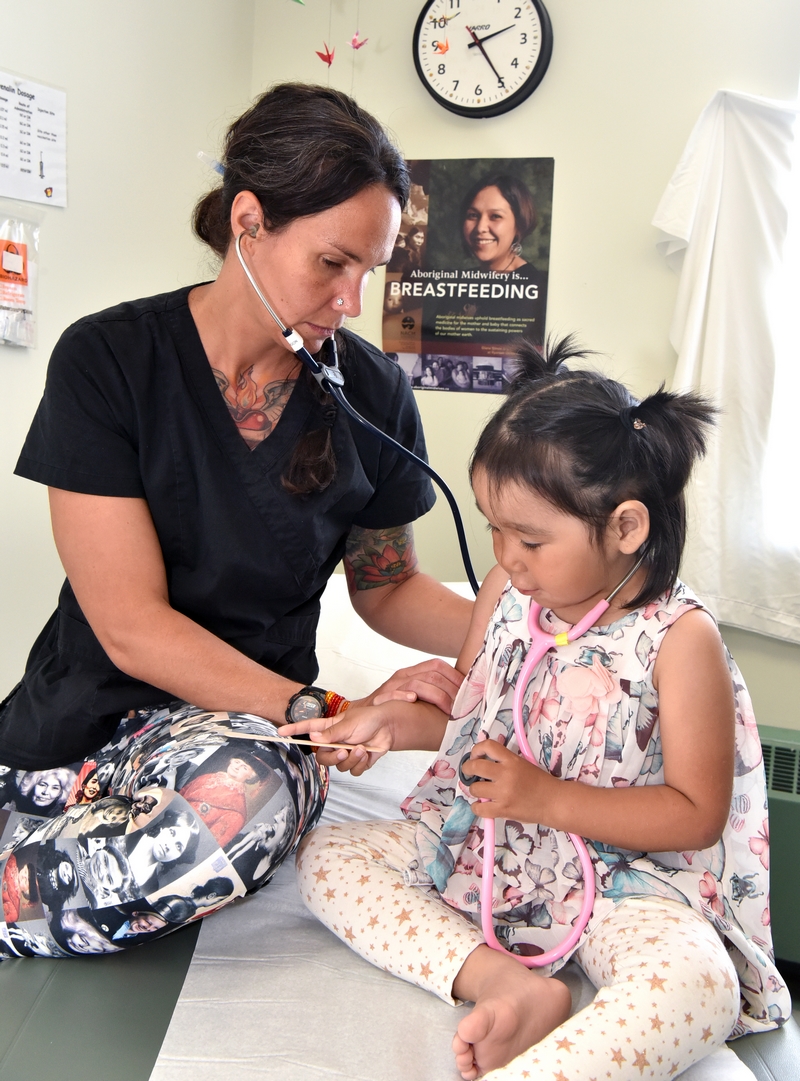
Did you know that…?
A large part of the northern Quebec territory does not have access to 811 and 911 services? On-site healthcare professionals are the first responders in these sectors. They do a triage by phone and determine whether they should see a patient or not.
The extended role is super stimulating but also creates stress and causes shocks:
- Having worked in intensive care and in the ER helps. It helps you learn how to manage stress and adrenaline.
- There are traps and you need to name things properly. Everyone who works up North accumulates different little post-traumatic shocks.
- We debrief more and more, it’s become less taboo. Before, we’d just talk about something else.
- If we don’t talk about our experiences, we just crack. It’s partly why there is a high turnover rate.
The increased responsibility comes with a different work pace:
- There’s less of a work overload up North: I take the necessary time to see my patients, one at a time. I don’t have to justify my time. Our professional responsibility kicks in.
- In the south, we distribute care, up North, we give care. It’s very important to maintain the human side of care. The work pace in the south makes it impossible to provide care in this way.
Providing care to children
“In perinatal services up North, a nurse cares for a patient throughout the whole process. Nurses oversee future mothers, from announcing they are pregnant to up to one year after they give birth, in a fully integrated way. The children receive follow-ups from birth to 9 years of age because they are part of a vulnerable clientele.”
- Nagia Idel Mehdaoui, Care Counsellor Nurse
Providing care to seniors
“You need to understand that in Nunavik, there are two types of seniors. Those who are still able to share their story, their experience and wisdom, and those who live to a more advanced age and suffer from age-related illnesses. Just 70 years ago, the Inuit were still nomadic. As a matter of survival, those who were no longer able to be of service to the clan were simply left behind, on an ice floe or in the tundra. It was their final contribution the survival of the others. Caring for seniors today is a challenge. It is important to preserve their dignity.”


